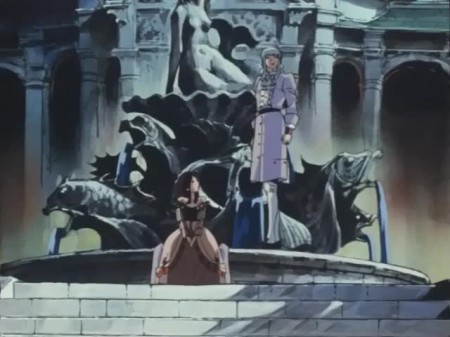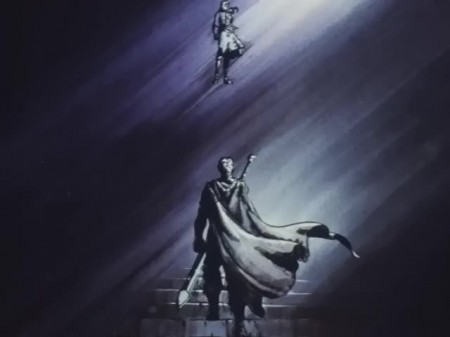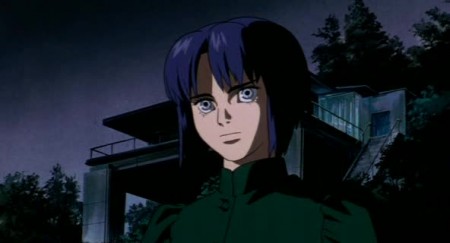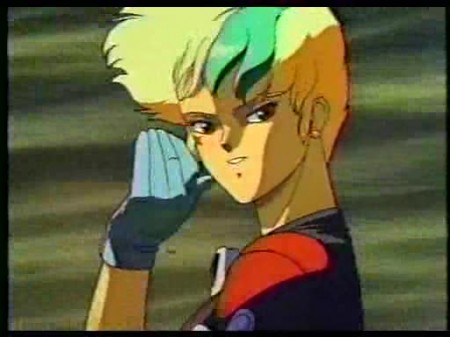Ask John: What are Anime’s Best Monologues?

Question:
In your opinion what are the best anime speeches?
Answer:
Anime is rife with catchphrases, monologues, and inspirational speeches. In fact, in recent years the weary, dejected, disappointed teen monologue has become a staple of dramatic and slice-of-life anime as seen in titles including Suzumiya Haruhi no Yuutsu, Hyouka, and Sakamichi no Apollon. However, when I think of “best” anime “speeches,” I immediately begin to consider monologues and lines more substantial and historically significant than mere memorable catchphrases, philosophical diatribes, or popular quotes. I’m positive that I can’t immediately recollect every significant example, but a handful do leap to mind.
Kenshiro’s signature line, “Omae wa mou shindeiru” (“You’re already dead”), in Hokuto no Ken isn’t a frequently used catchphrase, yet it’s so iconic that it feels as though it is. The single line concisely summarizes the complete confidence and overwhelming power inherent in a practiced master and evokes the Buddhist philosophy of being so skilled that an action becomes natural and thoughtless, that an action and its result are simultaneous states of being.
Suzumiya Haruhi’s high school self-introduction, “Higashi chuushushin, Suzumiya Haruhi. Tada no ningen ni wa kyoumi arimasen. Kono naka ni uchuujin, miraijin, isekaijin, chounouryokusha ga itara, atashi no tokoro ni kinasai. Ijou!” (I’m Haruhi Suzumiya, from East Junior High. I’m not interested in ordinary people. If any of you are aliens, time-travelers, or espers, please come see me. That is all!”) is so unique and striking that it instantly became an unfortettable short monologue and a landmark moment in the history of anime. The statement is so outré, and at the same time so bluntly honest, that it’s remarkably unusual in any language and culture and particularly exceptional in Japanese.
Alphonse Elric’s “Hito wa nanika no gisei nashi ni, nani mo eru koto wa dekinai,” explanation of alchemy’s equivalent exchange that begins the 2003 Fullmetal Alchemist television series is particularly memorable and has been referenced in other anime. The short monologue is memorable because it summarizes philosophical theme of the story and sets the stage for the story’s tragedy.
Nello’s final “Patrasche, boku tatemo shiawase demo” (“Patrasche, I’m very happy”) monologue before the Rubens’ Elevation of the Cross in Flanders no Inu has haunted Japanese viewers for decades with its painfully sad irony. The poor boy explains that he’s happy to have seen the famous painting and happy to have his dog by his side before both the animal and boy lay down to die.
Char Aznable’s lengthy speech before the Federation Assembly in Dakar contained in Mobile Suit Z Gundam episode 37 is one of the landmark speeches in anime history because it definitively establishes both Char Aznable’s iconic reputation and his steadfast resolve to struggle for freedom from oppression.
Griffith’s lengthy explaination of his personal manifesto to Princess Charlotte given in Berserk TV episode 10 and the climax of the Ogon Jidai-Hen I: Haou no Tamago movie is one of anime’s most pivotal monologues because it’s the singularly most significant plot pivot in the entire story. Gutts overhearing Griffith’s summation of the characteristics of a friend is the moment that sets the two young men on a fateful path of conflict.
Motoko Kusanagi’s “Sate doku e ikou kashira ne? Net wa koudai da wa,” (“The net is vast and infinite”) closing line from the 1995 Mamoru Oshii movie Ghost in the Shell is now iconic, but it’s also preceded and enhanced by her earlier philosophical self-analysis, “There are countless ingredients that make up the human body and mind, like all the components that make up me as an individual with my own personality. Sure I have a face and voice to distinguish myself from others, but my thoughts and memories are unique only to me, and I carry a sense of my own destiny. Each of those things are just a small part of it. I collect information to use in my own way. All of that blends to create a mixture that forms me and gives rise to my conscience. I feel confined, only free to expand myself within boundaries… And where does the newborn go from here? The net is vast and infinite.” Particularly in 1995, the assertion that the human body was limited but the new digital frontier an unlimited space in which humans could transcend all limitations was not only the theme of the movie but also a fascinating and epiphanylike statement.
Archer’s invocation of his Reality Marble “Unlimited Blade Works” is evocative and memorable both because of the intensity of the spell’s phrasing and the unusual fact that Archer recites the invocation in English.
If I may be allowed one particularly self-indulgent selection, I’ve long been enamored by the way Lufy simply says, “Abayo” (“Bye”) to Catty Nebulart in the 1988 Gall Force 3: Stardust War OVA. Lufy very casually says goodbye before she literally throws herself into a suicidal battle frenzy, willfully charging into a space battle which she already knows she won’t survive and already knows is futile. The resignation in her voice and demeanour is affective because it all reveals Lufy’s commitment to her duty and her fate, even when she knows that throwing her life away will accomplish nothing.
Add a Comment
You must be logged in to post a comment.





I’d like to nominate the moment in Gurren Lagann where Simon finally transitions away from being the cowardly Shinji and into being the protagonist we all wanted him to be. Everything in the first portion of the series is leading up to this moment and even the color palette of the episode changes after it.
http://www.youtube.com/watch?v=NYM3UtdP2KM
I consider Raoh’s last words as memorable and iconic as Kenshiro’s “omae wa mou shindeiru”, but I don’t want to spoil them for people who never watched the end of the first Hokuto no Ken TV series.
And pretty much every single thing Yang Wenli says in Legend of the Galactic Heroes is highly quotable.
I’m a die hard Inuyasha fan, so I couldn’t help but remember some dialogue that stood out for me from that show. I’d have to say that as much as I “hate” Kikyo, she is an amazing character in the sense that she is living on her deep hatred towards her life and the people that were part of her “demise”. because of this, she often says some pretty powerful stuff, most of which is infused with her hatred. some I can remember:
“Liar! I was a fool beyond compare in believing your farfetched tales and wishing to live together with you. I despise you with my last breath. My spirit cannot forget that all consuming hatred. So as long as you live my spirit cannot be freed.”
and of course, Kikyo’s epic monologue in episode 108 “to live is to die, to die is to live…”
Perhaps a little obscure, but I love when Shuichi Tataki (in Key the Metal Idol) explains what it means to be an idol singer.